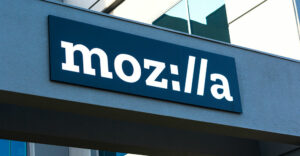
Google’s right to use the word “Android” for its mobile phone operating system is being challenged by Erich Specht, who acquired a trademark for the name “Android Data” in 2002.
Google attempted to gain the right to use “Android” for its OS last year, as it happens, but the U.S. Patent and Trademark Office denied its petition due to possible product confusion. Google went ahead and used the name anyway.
Last week, Specht filed a lawsuit in the U.S. District Court for the Northern District of Illinois seeking injunctive relief against Google. He’s also seeking US$2 million for each infringing use of “Android” by the defendants — which could total $94 million.
Given these facts, one would think that the full weight of the U.S. patent and trademark regulatory apparatus would be behind Specht. Indeed, you would think that this could be another David vs. Goliath corporate clash, with the added pizzazz of Google in the defendant’s seat.
You’d be wrong, though. This dispute over the use of the word “Android,” if nothing else, illustrates the complexity of trademark law in the U.S., which has a system that can be influenced as much — if not more — by what is happening in the marketplace as by who has filed what at the USPTO.
It is easy for the layperson to miss this distinction, Douglas R. Wolf, partner with Wolf Greenfield, told LinuxInsider.
“The Trademark Office only determines the question of registration,” he said. “A registration is important and provides many rights to the owner. However, it does not stop others from using a mark in the marketplace, nor does it guarantee victory in litigation.”
Indeed, Specht may well find himself out of luck. Google is well positioned to argue that the trademark had been abandoned and was available to use.
However, it’s not a slam dunk for Google either, and there is a good possibility that this case could wind up being litigated for years.
From There to Here
Following is a brief history of events leading to the current standoff, according to Chris Collins, an attorney with Vanderpool, Frostick & Nishanian.
In 2002, Erich Specht registered the mark “Android Data” to use in conjunction with the e-commerce transaction software licenses his business was selling. Five years later, in 2007, Google filed an “intent to use” trademark application to use “Android” for its mobile phone operating system software, among other things. On Feb. 14, 2008, the PTO issued its first Office Action refusing registration of Google’s “Android,” finding there was a likelihood of confusion between “Android” and a previously registered mark — “Android Data.”
Nevertheless, on April 2, 2008 — only one day after April Fool’s Day, Collins noted — Google unveiled its Android OS at the Mobile World Congress in Barcelona. Google did file a challenge to the USPTO action, but that challenge was rejected, and the refusal to file became final on August 20, 2008.
Google took two actions in response, Collins explained: 1) It requested that the USPTO reconsider the rejection based on the apparent failure of Specht to file a declaration of continued use; and 2) It appealed the final rejection to the USPTO’s Trademark Trial and Appeal Board.
The appeal was docketed but stayed, pending USPTO’s determination of the request for reconsideration. Then, on April 22, 2009, Specht filed the required Declaration “on the last possible day to do so under the PTO Trademark rules,” according to Collins. Specht then turned to the U.S. District Court for relief.
The detailed chronology is important, Collins said, because “the timing of various acts by Google shows that it has been outfoxed — so far — by Specht and his attorney.
“Based on Google’s filings, it appears that the Google attorneys either believed that Specht had stopped using the ‘Android Data’ mark by the date they filed the Google application or they missed the mark entirely. The former is more likely,” speculated Collins.
So, when the USPTO issued its refusal, Google made a strategic gamble — perhaps an error, in retrospect — to launch the Android before registering the mark.
“We may never know exactly what went through Specht’s mind when he heard that news, but if it could be represented as a sound, it would be the old-fashioned cash register bell or the slot machine jackpot alarm,” Collins said. “Once Google launched Android, Specht’s rights in ‘Android Data’ suddenly became much more valuable.”
What Google May Have Been Thinking
It’s easy to guess what lay behind Google’s thinking: For starters, it’s unlikely that its attorneys assumed it could bully or bribe its way to ownership of rights in the word “Android” just because it was Google.
“I think its attorneys did their homework and concluded that Specht had abandoned the trademark,” Eric Fingerhut, a trademark attorney with Howrey, told LinuxInsider.
For example, Specht did not have a functioning Web site for most of the last six or seven years, Fingerhut observed. “There were good reasons to conclude that Mr. Specht didn’t have a valid trademark use.”
Shrugging off the USPTO’s refusal of registration was likely a calculated move. A refusal of registration doesn’t prevent Google from using the “Android” mark in the marketplace, Jonthan Gelchinsky, a partner at the IP law firm Finnegan told LinuxInsider.
“In order to stop Google from actually using the mark, Specht would need to assert his trademark rights in court and prove that Google’s use of the ‘Android’ mark creates a likelihood of confusion with Specht’s prior ‘Android Data’ trademark,” he said. “Specht may not be successful in doing that, even in view of the PTO’s refusal.”
It is not uncommon for a party to take a position that is inconsistent with the USPTO’s position, Nancy Frandsen, a partner and chair of the trademark practice at the IP law firm Woodcock Washburn, told LinuxInsider.
“The PTO’s ability to assess whether there is a likelihood of confusion for registration purposes is generally limited to what appears in the registration application. Litigants, however, are not so limited,” she explained.
Different Scenarios
There are a number of ways this case could play out. “Google will likely receive a formal rejection from the Trademark Office indicating that the Specht case is still alive and that Google must respond,” Wolf suggested.
“If that fails, they are likely to attempt to cancel or narrow the blocking registration,” he added. “Unless this goes to federal court, it could be years before the issue of registration is resolved,” and this will not resolve the question of whether Google can “use” the mark.
The fact that the U.S. courts consider the realities of the marketplace in determining whether marks are confusingly similar should be in Google’s favor. “They … consider many factors, including differences between the marks, other similar marks in the marketplace, price points, channels of trade, other indicia used with the marks, the underlying goods or services, and sophistication of the customer,” noted Wolf.
The USPTO proceedings will carry some weight in any litigation over the issue — but they will not be determinative, Barry A. Cooper, an attorney with Gottlieb Rackman & Reisman, told LinuxInsider.
“Specht can press his case, but effective pressure would have to [be] exerted by him commencing litigation in court to get Google to stop using the trademark [or] to obtain a monetary recovery,” Cooper said, “by way of settlement or an eventual trial decision in his favor.”
On the other hand, the USPTO clearly warns that you run a high risk of being sued if you use a name after it has declined to issue a mark, Brian Liu, cofounder and chairman of LegalZoom.com, told LinuxInsider. “But some people will continue nevertheless — because they think they will prevail in a court case or they think they can settle it out of court — because they like the name so much.”
Specht’s seeming abandonment of the trademark is likely to be a factor. “It appears that [he] stopped using the trademark many years ago,” noted Liu, “and the company that owned the trademark was dissolved four years ago. If it’s three consecutive years since you’ve used it in commerce, it’s prima facie evidence of abandonment.”
All Specht would have to prove, however, would be that he intended to use it still, and and that he was still doing something with the trademark, Liu added. “Based on the currently available evidence, I think Google has a good case, but Specht has enough arguments to keep it interesting.”
Settle or Pay Up?
This case, like most litigation, is likely to settle. “It is also likely that the defendants will be able to continue with their branding using the term ‘Android’ in view of this settlement,” said Raymond Van Dyke, a partner with Merchant & Gould.
The downside for Google, should it have to work its way through the court system, would be considerable. Specht could secure an injunction against the use of the “Android” mark, which could have serious ramifications for Google’s product launch, Michael Kelber, partner in the IP group at Neal, Gerber & Eisenberg, told LinuxInsider.
Given the stakes, Google is facing an expensive legal battle to prove that Specht lost his rights in “Android Data,” Collins said. Furthermore, the threshold is relatively low for Specht to show he continued using the mark for trademark purposes.
Google may try to use its advantage in size to overwhelm Specht and his legal team, Collins said. Over time, though, if Specht were successful in holding onto “Android Data” and could prove that Google’s use of “Android” might cause confusion — or already had caused confusion — then Specht would be entitled to his injunction and, possibly, damages.
“Due to Google’s poor handling of this issue to date, Google could actually be liable for treble damages and attorney’s fees if the court concludes that this is an exceptional cause based on intentional infringement by Google,” Collins said.
Google handed Specht that ammunition when it launched Android after the USPTO cited “Android Data” in its refusal to register, he added.
“Given the potential costs and liability involved, Specht will probably pursue this case just long enough to get a handsome settlement from Google,” Collins predicted. “Even if the public never learns the final settlement numbers, it will be a windfall for Specht and a totally avoidable embarrassment for Google — even if the money doesn’t mean much to them.”




















































